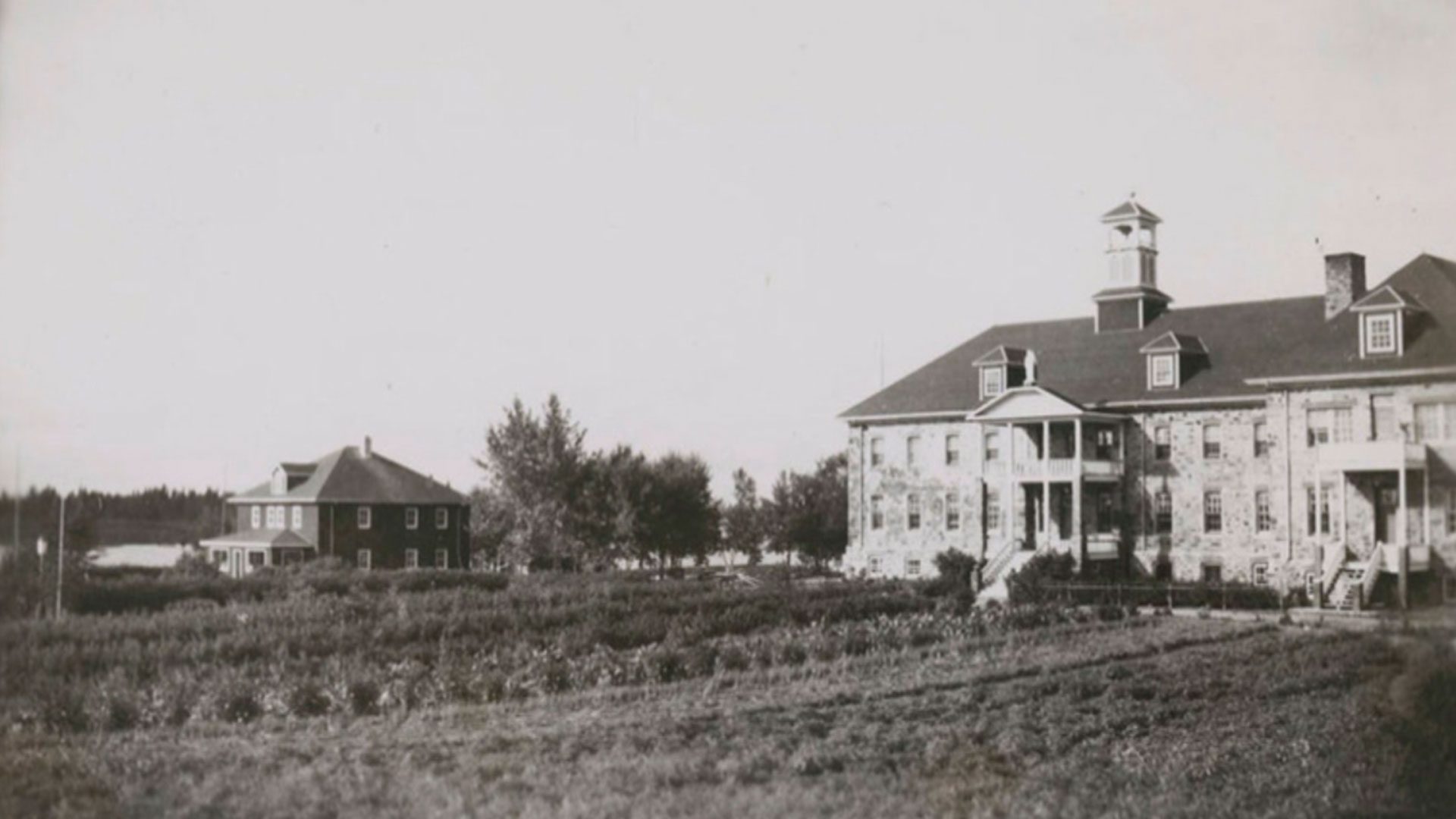Warning: This story discusses residential schools.
A First Nation in northern Manitoba is dealing with the discovery of 187 underground anomalies that may be the remains of children who died while attending residential school.
David Monias, chief of Cross Lake Band/Pimicikamak Cree Nation, revealed the findings Wednesday in the community about 800 km north of Winnipeg in an announcement streamed live online.
“For us, it’s quite shocking to hear that,” Monias told the event attended by survivors of St. Joseph’s Residential School and community elders. “You wonder how many missing children are there?”
Project coordinator Sandy Robinson said 1,240 Indigenous children from 24 communities in the region were forced to attend St. Joseph’s, also known as Cross Lake Indian Residential School.
They were some of the estimated 150,000 Indigenous children separated from their families and sent to more than 130 residential schools across Canada between 1831 and 1996.
Read more:
Pimicikamak Cree Nation Presents Ground Penetrating Radar Investigation Findings
The residential school system was devised and funded by the federal government and operated by churches. Survivors of the schools have said they were mentally, physically and sexually abused.
Just over 4,100 children died at the schools, according to Canada’s Truth and Reconciliation Commission (TRC). In Manitoba, the commission says at least 338 children died there or within a year of leaving their schools.
“It is important to remember that parents were often not informed that their children had died of illnesses, accidents or by other reasons,” said Robinson of Cross Lake. “(School officials) did not bother to waste a stamp to get a notice delivered.”
At the time, the bodies were not sent home. Leaving communities like Cross Lake, “cleaning up the mess,” Robinson added.

Monias said a team using ground-penetrating radar swept different parts of the community during different seasons in 2022 and 2o23. He said several areas were searched, including the grounds of the former school run by the Catholic Missionary Oblates of Mary Immaculate.
The chief, wearing an orange ribbon shirt and eagle feather headdress, said Cross Lake had already identified 85 missing children prior to initiating the search, but now had more questions.
“We had to not only search the ground but we also had to search documents … and unfortunately, there’s many we could not account for,” he said.
That aligns with what the TRC found: that only 164 of the 338 children who died in Manitoba schools were documented.
Monias said Cross Lake and neighboring Norway House Cree Nation, who are working on the search together, will seek input from the International Commission on Missing Persons – an internationally recognized organization with expertise in repatriation – based in Europe.
The Royal Canadian Mounted Police, whose members forcibly removed children from their families and delivered them to schools, are not involved, he added.
“We need an independent, unbiased body to come and help with the searches,” the chief said. “We know that there is anomalies … but we don’t really know who they are, whose family they belong to, where their community is.”
Manitoba had 19 residential schools, according to the National Centre for Truth and Reconciliation, which documents and archives national residential school records.
Monias said the ground-penetrating radar picked up “thousands and thousands of anomalies” that were eventually “filtered” down to 187 anomalies “with a consistent depth of one metre to two metres.”
“In response to these findings,” he said, “the Nation will conduct ceremonies … to honour those who may be buried and those who never returned to help their souls find peace in the spirit world.
“Each anomaly/unmarked grave represents a life and a story that was unjustly silenced.”
Monias said the community would mark the losses with traditional ceremonies crucial to its healing process.
It is one of several First Nations that have searched for remains following the discoveries of unmarked graves in British Columbia and Saskatchewan.
Cross Lake received $2.1 million for archival research, statement gathering, commemoration and fieldwork investigation from a $27-million fund established by the federal government in 2021.
“Today’s news out of Manitoba is devastating,” said Matthieu Perrotin, spokesperson for the minister of Crown-Indigenous Relations. “Residential schools are a shameful reality of Canada’s history, and their painful legacy continues to be felt today.
“We are working in partnership to support communities as they continue the very important work of locating, identifying, and commemorating the remains of children who never came home.”
Meanwhile, Manitoba’s premier announced a new fund Wednesday to encourage “reconciliation” with Indigenous Peoples.
In a news release, Wab Kinew said: “I want every child and every family in Manitoba to have the opportunity to reflect on the legacy of residentials schools, the children who didn’t come home and the profound impacts of that trauma on families that still exists today”
He also said Orange Shirt Day (the National Day for Truth and Reconciliation), celebrated on Sept. 30, would now be a provincial holiday in Manitoba.
Kinew said the move brings Manitoba in line with Call to Action No. 80 of the Truth and Reconciliation Commission of Canada’s 94 Calls to Action, which called for a statutory holiday in honour of survivors, their families and communities.
An Indian Residential Schools Help Line 1-866-925-4419 is available 24 hours a day.










